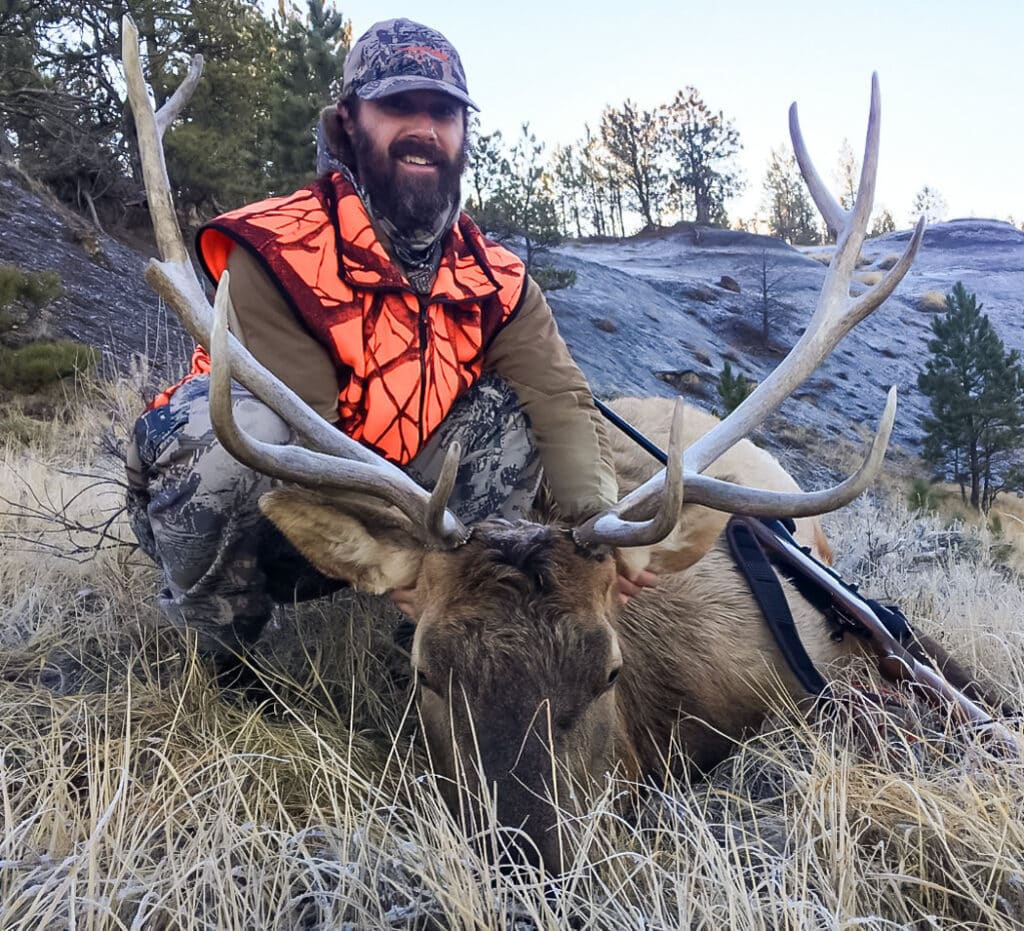After years of an unbalanced approach and energy dominance agenda that has ignored conservation and recreation values on federal public lands, MWF is proud to continue our advocacy efforts to support common-sense reform to outdated and wasteful oil and gas leasing practices. In response to President Biden’s signing of an Executive Order that issues a pause on new oil and gas leasing on federal lands, MWF joined Montana Wilderness Association, Friends of the Missouri Breaks, and Business for Montana’s Outdoors to issue the following statement of support:
Business, Conservation, and Hunting and Angling Groups
Applaud Biden’s Pause on Oil and Gas Leasing
Groups say pause is a much-needed opportunity to reform a broken leasing system
Helena, MT – A group of Montana-based business, conservation, and hunting and angling organizations have come together in support of the executive order President Biden is expected to sign today pausing oil and gas leasing on federally managed public lands.
The organizations point to the fact that 65% of all oil and gas leases in Montana, covering 1.2 million acres of public lands, are currently not being used, primarily because there is very little, if any oil and gas potential on public lands in Montana. They also point to the fact that currently there isn’t a single operating oil rig in the state.
“Our current leasing system hasn’t worked for Montana’s diverse economy and communities for a long time,” says Marne Hayes, executive director of Business for Montana’s Outdoors. “It makes no economic sense to lease public lands that have no oil and gas potential when land management agencies could instead be looking at how those lands could be used in service of creating more jobs and supporting more businesses that rely on our outdoor recreation economy – driven as it is by hunting, fishing, hiking, wildlife viewing, and other activities that, all in all, generate some $7 billion a year for our state.”
Hayes adds that the pause will not at all restrict funding for the Land and Water Conservation Fund. “That’s an unfounded argument that has no basis in reality, as money for LWCF is funded entirely through currently producing off-shore oil and gas operations – which are unaffected by the pause – not areas that won’t be leased as a result of Biden’s executive order.”
Despite the fact that Montana holds little oil and gas potential, the BLM has not let up on offering hundreds of leases a year at regularly scheduled auctions. During the four years of the Trump administration, 30% of the leases the BLM auctioned off went for the minimum bid of $2 an acre.
Leases that aren’t bid on at the minimum $2 per acre are sold off the shelf for $1.50 an acre – a practice referred to as noncompetitive leasing. During fiscal year 2018, the BLM sold more than 262,000 acres of public lands in Montana noncompetitively for a $1.50 acre.
Sen. Tester introduced a bill last year, called the Leasing Market Efficiency Act, that would have put an end to noncompetitive leasing.
“The BLM spends millions of dollars every year administering leases that lead to no oil and gas production, no jobs, no royalties, no public benefit,” says Joe Offer, executive director at Friends of the Missouri Breaks. “That’s money and resources the BLM could be spending on habitat improvements, law enforcement, and maintenance of trails, trailheads, fishing access sites, boat ramps, and many other things that are critical for Montanans’ outdoor recreation economy and our way of life.”
The group of Montana-based organizations supporting the leasing pause would like Congress and the administration to use the time to enact new policy and pass laws, such as Sen. Tester’s Leasing Market and Efficiency Act, that would reform the country’s oil and gas leasing system.
“There’s no doubt that our hunting, fishing and outdoor recreation opportunities have suffered from a broken oil and gas leasing system, which also hurts taxpayers,” said Alec Underwood, federal conservation campaigns director for the Montana Wildlife Federation. “A pause on oil and gas leasing will allow for a review of wasteful and outdated policies and ensure our $7 billion outdoor recreation economy, and the jobs it supports, are protected for this and future generations.”
Aubrey Bertram, eastern Montana field director at Montana Wilderness Association, argues that Congress must also update its bonding rates to cover reclamation costs, which haven’t been updated since the 1960s, and update royalty rates paid to local communities from nearby oil and gas production. Taxpayers for Common Sense estimate that Montanans lost out on approximately $56 million in rental revenue on federal oil and gas leases between FY09 and FY18.
“America’s current oil and gas leasing system – the leasing of publicly owned resources to private companies – is working against the American public and only serves Wall Street investors and wildcat speculators,” Bertram says. “We appreciate President Biden giving us a break while we take a hard look at this system so we can move forward with meaningful reforms to protect our Montana way of life.”



